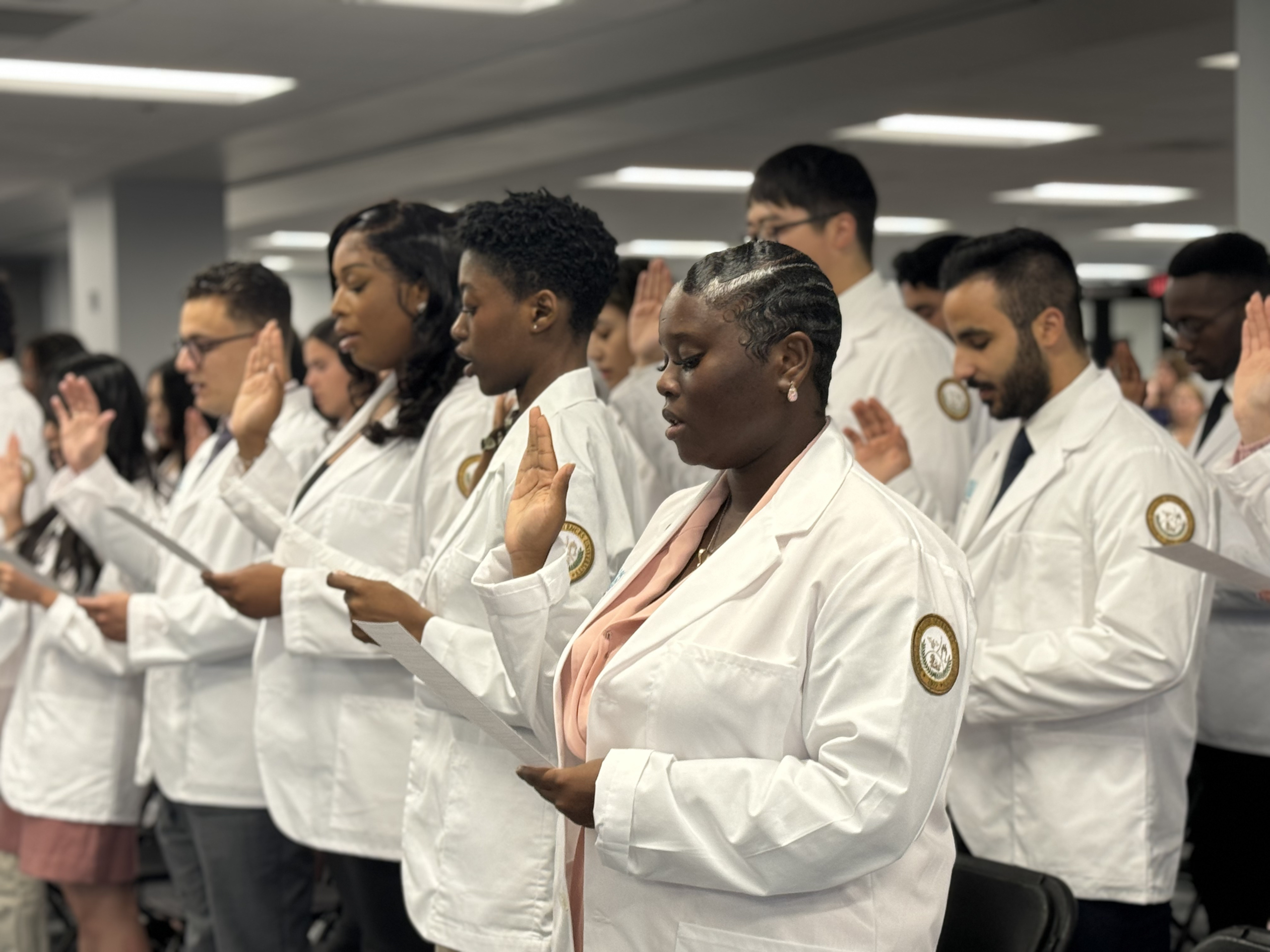PHSU Welcomes Aspiring Physicians in St. Louis, Advancing Culturally Competent Healthcare
With a strong focus on culturally competent healthcare, PHSUŌĆÖs St. Louis location welcomed 30 new medical students into the community. These future physicians are set to make a significant impact on the St. Louis region, in partnership with local hospitals, enhancing their commitment to understanding and serving diverse populations.
On Thursday, July 25, 2024, the new MD class of 2028 at Ponce Health Sciences University (PHSU) donned their white coats for the first time at a ceremony held at the universityŌĆÖs ultramodern facility in Midtown St. Louis, MO. This significant event marked the beginning of their journey in the medical field, symbolizing their entry into the medical profession and their commitment to patient care.
The white coat ceremony, a tradition with roots dating back to the 20th century, serves as a rite of passage for medical students. It signifies their commitment to upholding the ethical standards and responsibilities of the medical profession. Ultimately, the white coat serves as a powerful symbol of the trust placed in physicians by their patients.
Our mission is to educate bilingual, ethical professionals who provide compassionate, culturally-competent healthcare and generate high-impact research to reduce health disparities in the populations we serve in Puerto Rico and the U.S. through high-quality education in a diverse environment.
This yearŌĆÖs incoming class was chosen through a highly competitive admissions process, with 605 applications received for just 30 seats, resulting in a 4.9% acceptance rate. The cohort includes 14 male and 16 female students from ten different states, including Missouri, and various countries, reflecting the diversity and inclusivity that PHSU values.
PHSUŌĆÖs St. Louis location offers MSMS, MD and PsyD programs and is deeply involved in the local community particularly with medically underserved populations. The universityŌĆÖs programs, such as the Master in Medical Sciences (MSMS) and the PHSU pathway programs, are designed to support students, many of whom are bilingual, from low-income backgrounds, and are first-generation college students. These programs strengthen their academic foundations and help them succeed in medical school, contributing to the growing number of alumni who are now successful physicians.
As they don their white coats, these 30 students carry with them the hopes and expectations of becoming empathetic, knowledgeable, and culturally competent physicians who will make a lasting impact on the St. Louis community and beyond.

